
Client
Leading Airline
Industry
Airline & Travel
Project
B2B booking platform redesign to enhance the User Experience (UX) through intuitive workflows and navigation, along with an engaging and appealing User Interface (UI)
Tools used
The airline industry witnessed massive growth in business travel immediately following the end of the pandemic. As companies gravitated away from Zoom and returned to in-person meetings, the business travel market soared to $359 million in 2023, and it shows no signs of a slowdown.
In an effort to capture a larger share of this growing market, a leading airline (which has chosen to remain anonymous) analyzed its many customer touchpoints for opportunities to increase both customer satisfaction and visitor conversions.
Based on their research, the airline concluded that improving their platform’s User Interface (UI) and the User Experience (UX) for business travelers offered a powerful opportunity for improvement.
On the original booking platform, users struggled with:
After a thorough vetting process, the airline turned to Net Solutions to spearhead their redesign efforts. The dedicated team from Net Solutions handled every phase of the redesign process, from user research through usability testing—and everything in between.
The result? A radically improved UI and UX that increased conversion rates, customer satisfaction scores, and overall customer engagement.
Net Solutions set out to create an attractive, user-friendly travel booking platform with an intuitive desktop interface, streamlined navigation, and a straightforward booking process.
Net Solutions managed and implemented every element of the strategy, working closely with the airline’s team to gather their input over the following phases.
Net Solutions used a 5-phase design process to guide their efforts, which we’ll cover in detail in the next section.
Thought leaders in the field of UX and UI design have devised numerous models that guide researchers, designers, copywriters, UX specialists, and anyone else involved in the design process.
Discover
Define
Ideate
Design
Usability
Testing
Net Solutions adopted the 5-Phase process to structure its approach to the platform redesign, which includes the following phases.
Let’s explore each phase individually, and how Net Solutions used each component to create a usable, high-converting booking platform.
During the discovery phase, Net Solutions worked to understand the needs and expectations of both internal and external users, including:
User Interviews
Net Solutions’ researchers conducted live interviews with users to gather qualitative research, asking them insightful questions about their experience, goals as users, and frustrations that prevented them from achieving those goals.
Customer Surveys
Researchers gathered hard, quantitative data through customer and user surveys, crunching the numbers to gain a big-picture understanding of the customer journey and key drivers.
Competitive Analysis
Net Solutions gathered broad data and conducted research regarding competitor platforms, identifying key features like passenger trip summaries and the option to book cars. They also evaluated competitors based on use satisfaction in categories such as ease of navigation and clarity of layout.
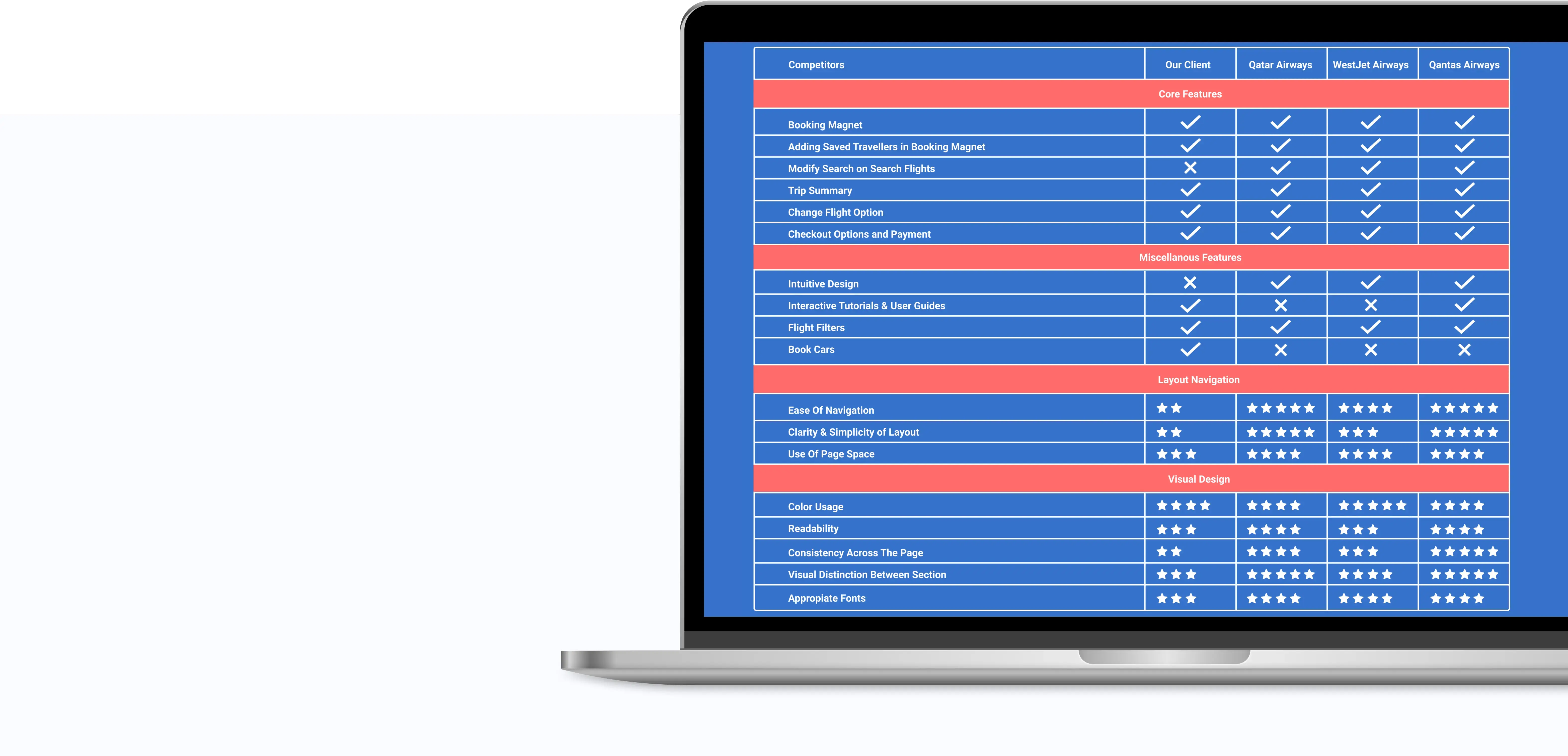
During the Define phase, Net Solutions created user personas based on the data they collected and customer journey maps. This laid the foundation for understanding target audiences and how each group interacted with the platform, allowing UX and UI designers to tailor their efforts toward those users.
User Personas
A user persona is a semi-fictional representation of an ideal customer, and design teams typically identify a small number of user personas. Giving user personas names and backstories helps designers understand and empathize with those users, understanding relevant characteristics that drive their needs and influence their pain points.
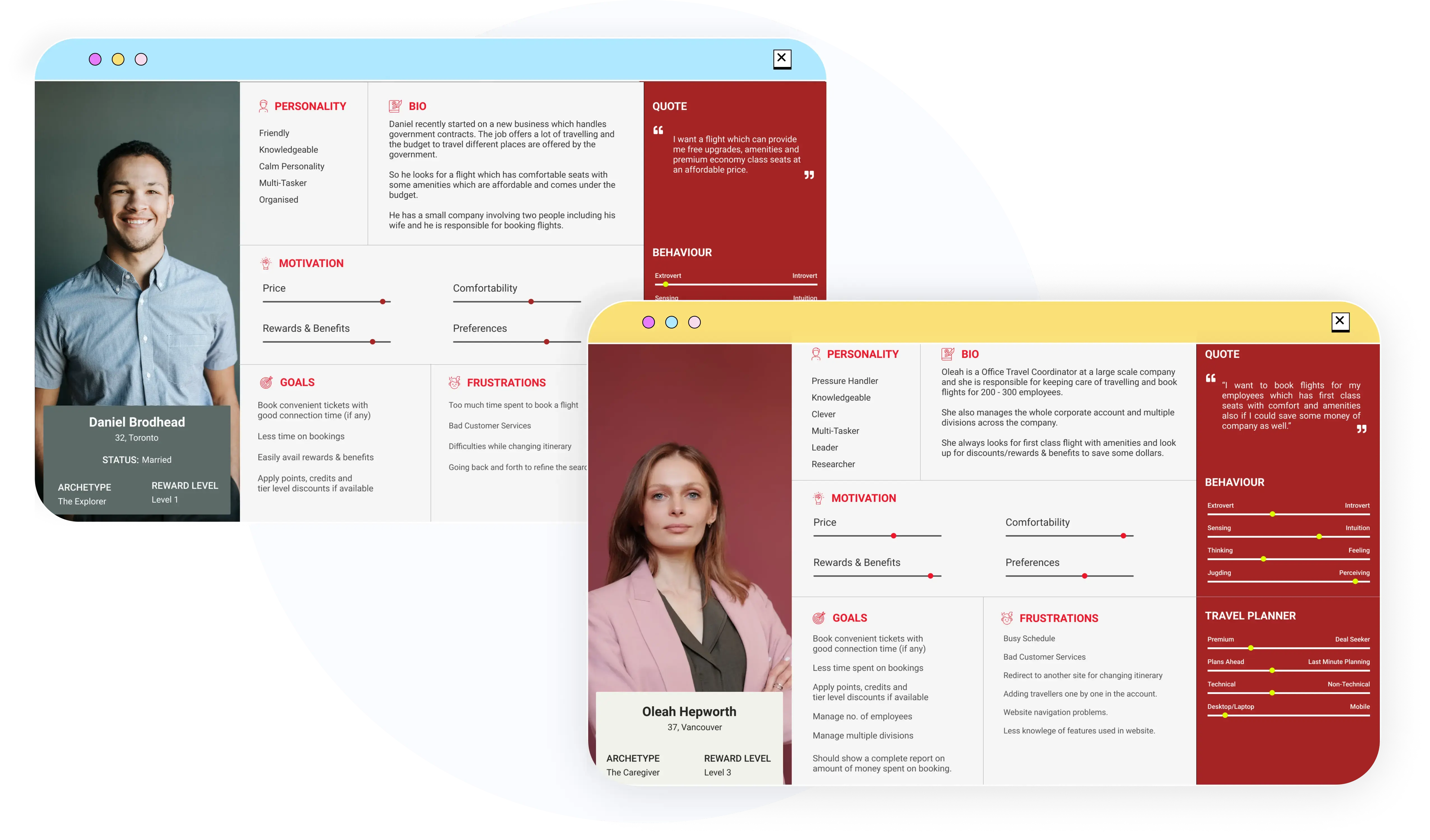
Empathy Maps
Empathy maps allow designers to visualize the user experience and customer journey from the vantage point of key users, identifying what each user thinks, feels, sees, and does throughout their journey. They also identify the “pains” or challenges they experience with substandard products, along with the “gains” each user will enjoy thanks to specific improvements.
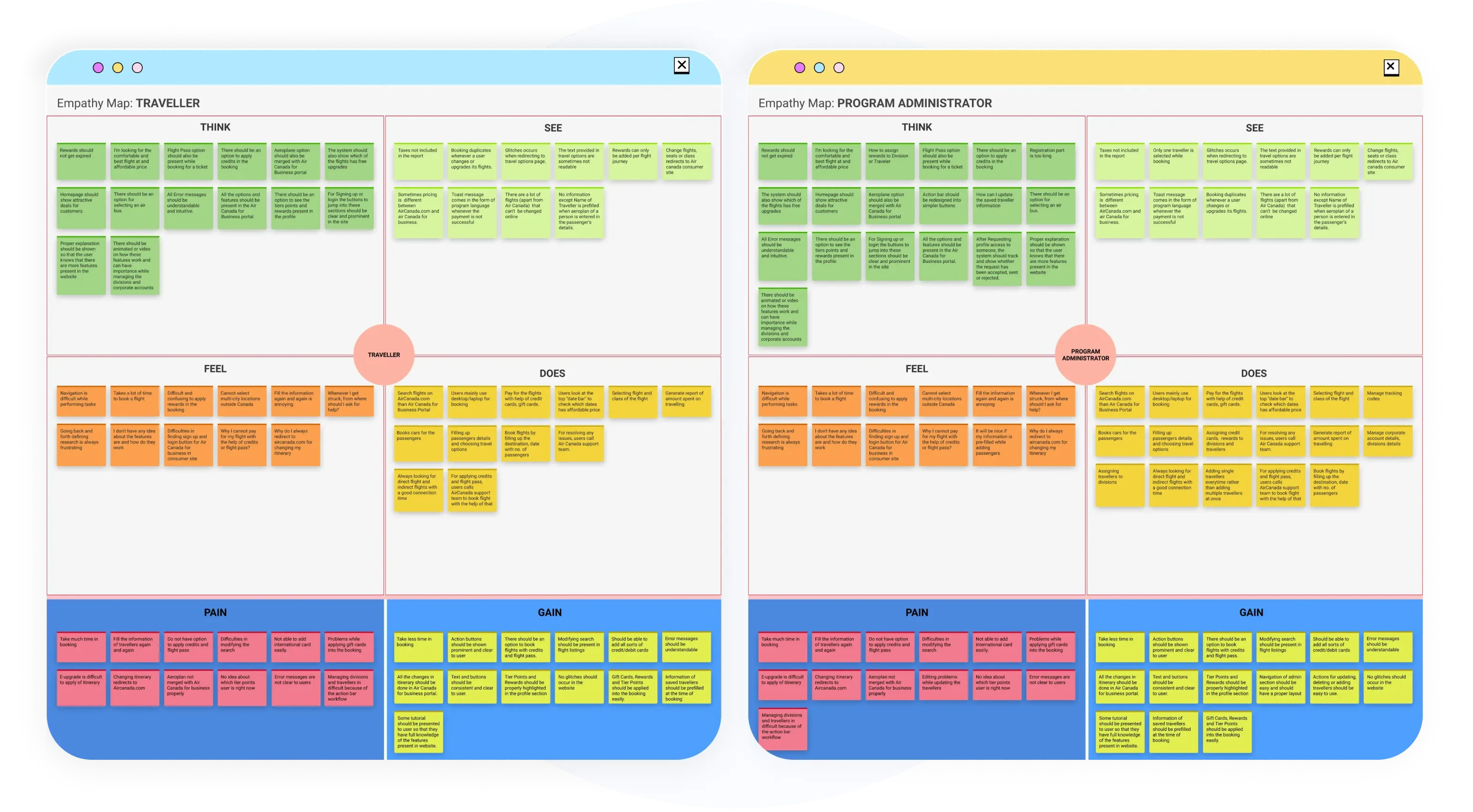
Customer Journey Maps
Customer journey maps are visual tools that identify, step-by-step, each action in the customer’s journey toward a specific goal. Based on the data they collected, Net Solutions created customer journey maps for booking flights and administrator workflows. The maps helped both Net Solutions and the client’s teams visualize each process from start to finish, paving the way for strategic interventions and user-friendly journeys.
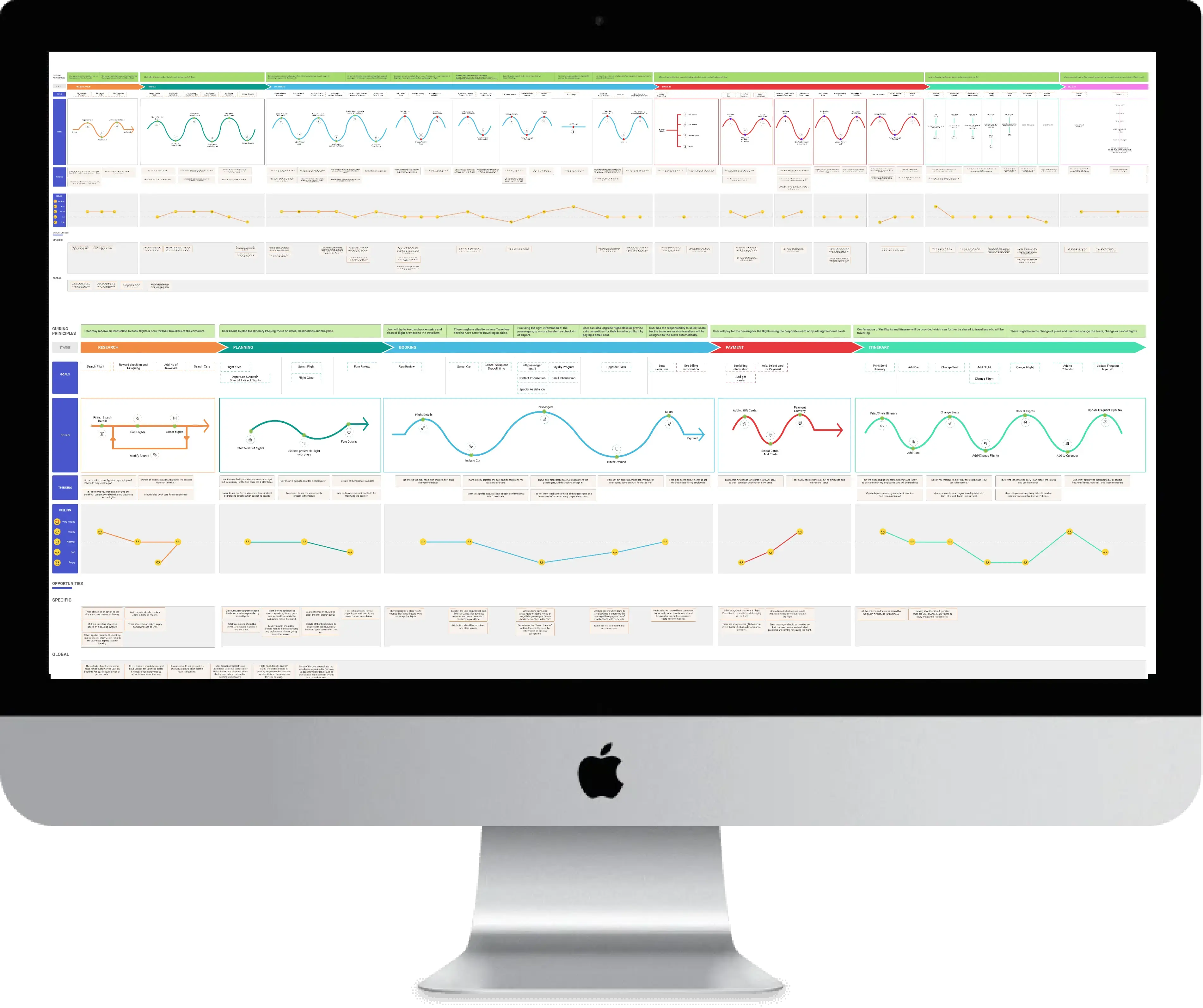
During the ideation phase, designers and copywriters begin exploring solutions. Guided by user personas, empathy maps, customer journey maps, and raw data, the creatives explore a wide range of possibilities for design, workflows, and messaging.
The ideation phase consists of:
As the ideation stage progressed, the Net Solutions team began to see patterns, connecting ideas and identifying larger themes. As ideas coalesced into a solid action plan, the Net Solutions team began preparing the groundwork for the platform’s information architecture.
Once the team agreed on the general direction of their design goals, designers prepared the following elements.
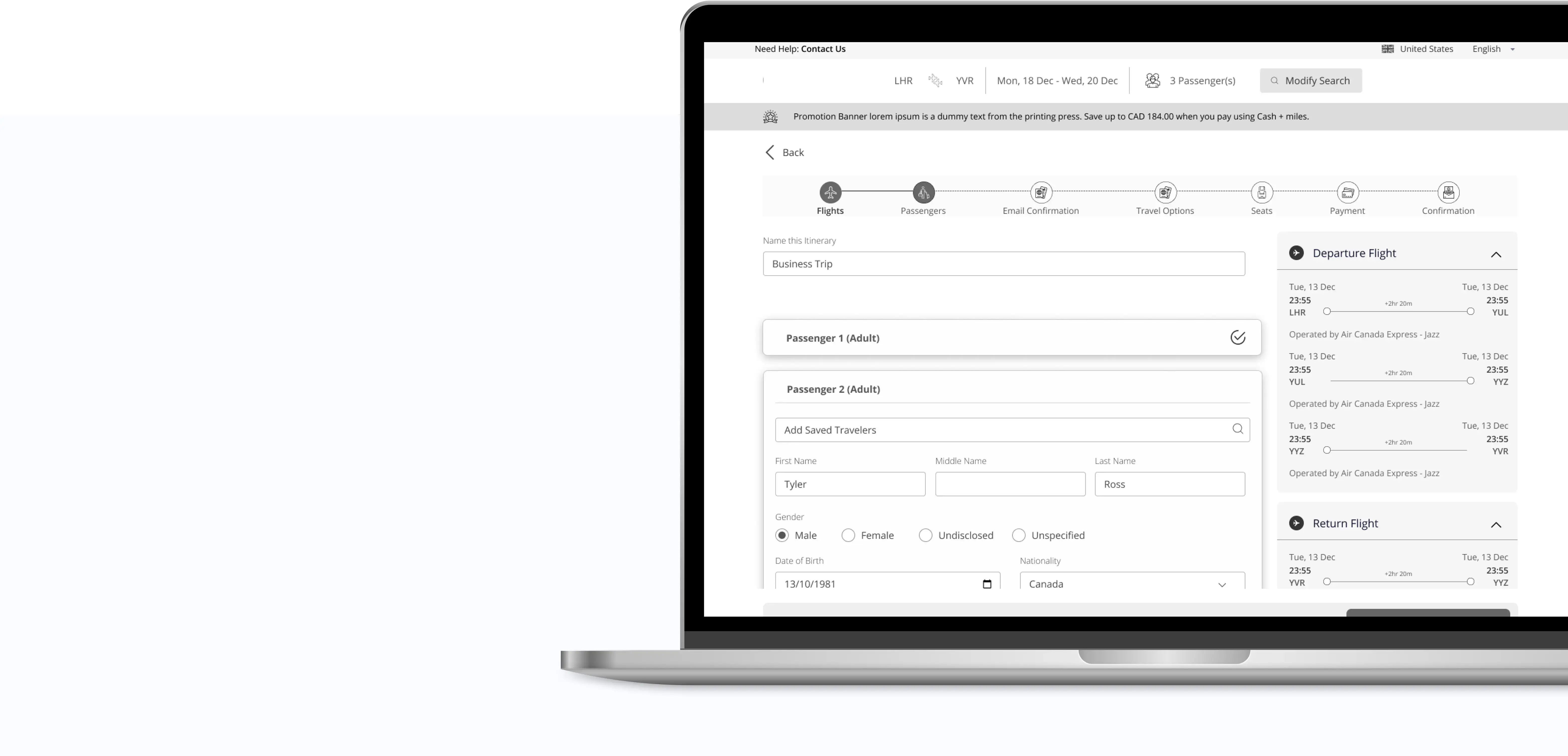
Usability testing is a critical phase, where UX testers rigorously evaluate prototypes to identify and address anything that falls short of a seamless experience. Net Solutions gathered a representative sample of layman users within the target demographics the airline serves.
The audience members played the role of potential customers who matched the profiles of end users. Usability testing allowed the Net Solutions team to gather valuable insights into how users interact with the product, helping them spot any issues that would potentially detract from the User Experience.
Based on the data gathered through UX testing, Net Solutions’ designers created the final product that would become the airline’s new, user-friendly booking platform.
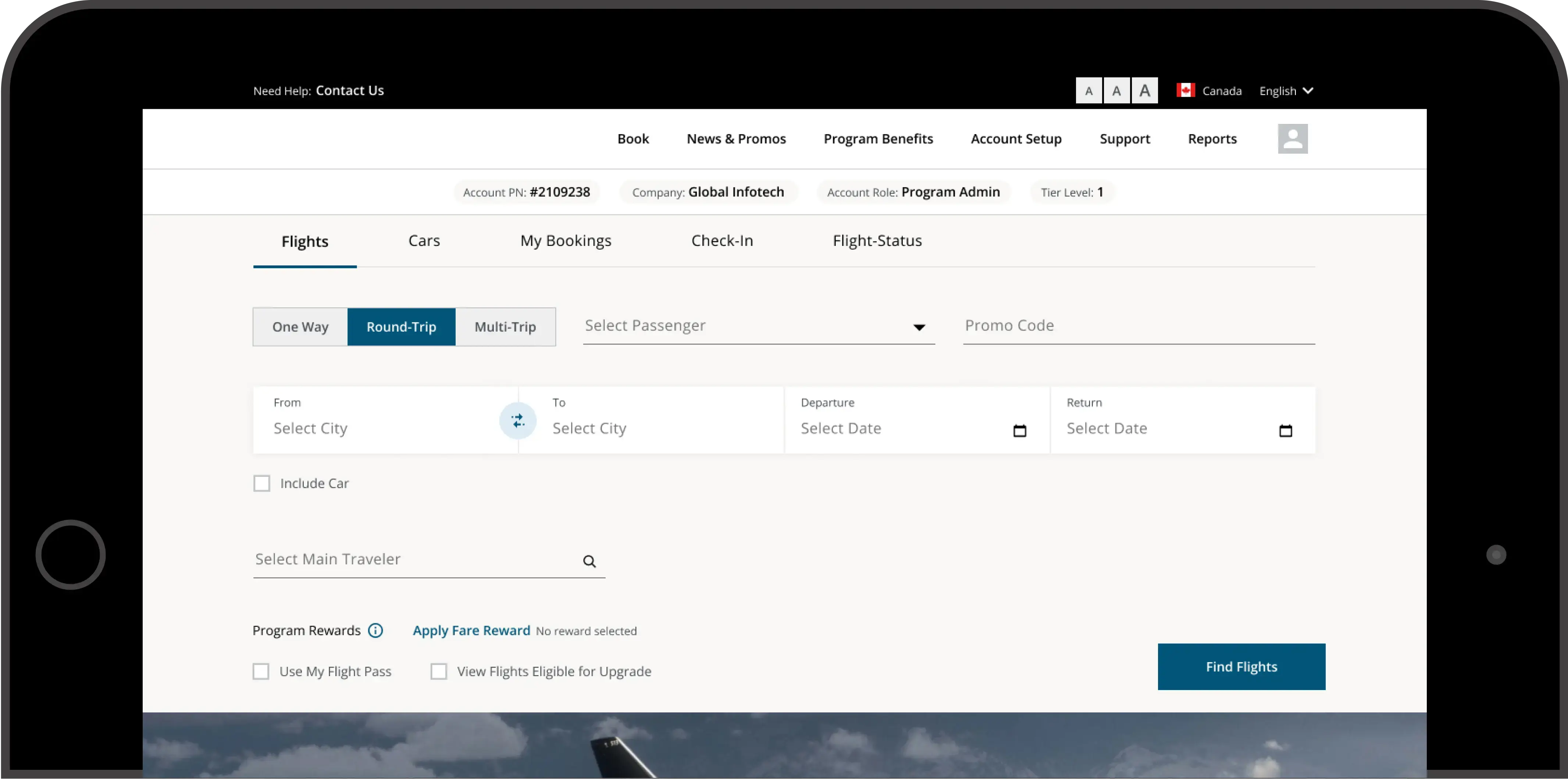
The airline’s new platform succeeded in increasing conversions among business travelers and travel arrangers, who gave the new platform high ratings in terms of usability and visual appeal. Users found it easier to navigate the platform, search for flights and other key information, and book flights with zero hassles.
With the business travel market expected to grow by 10.5% annually through 2032, the airline is in a powerful position to expand its market share and attract new, loyal customers in the years to come.